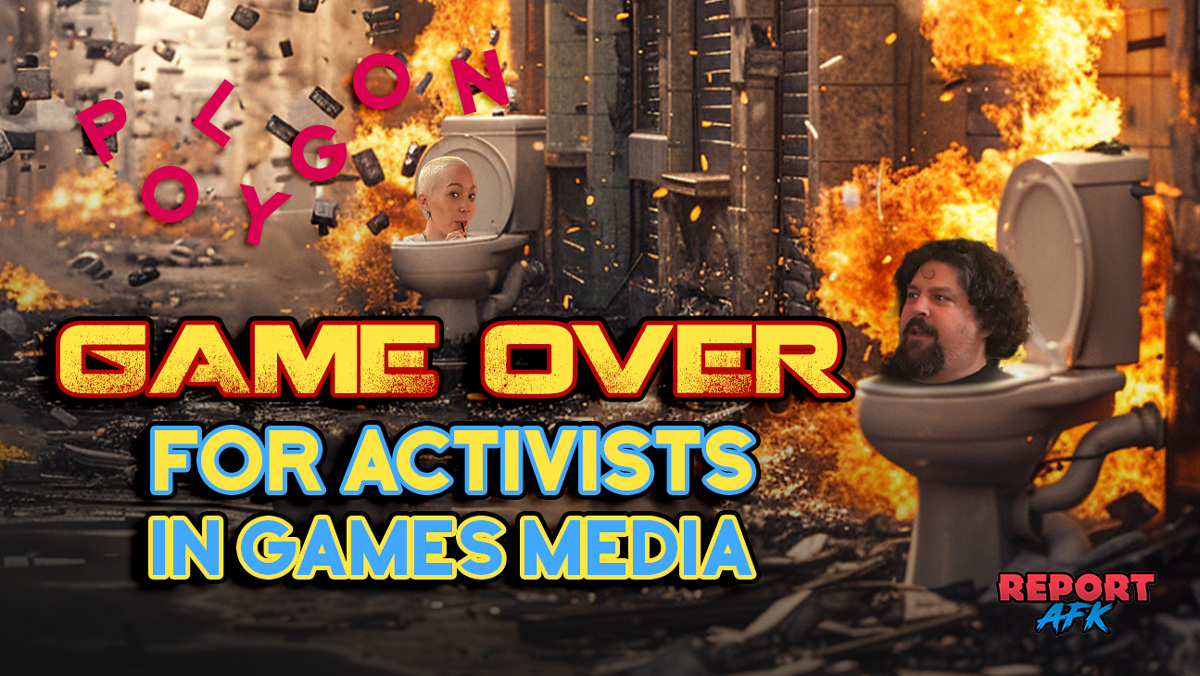
Game Over for Activists: Polygon’s Purge is a Herald of Change
DramaGaming FailsGaming News 23 Ayefkay May 3, 2025

The Game Has Changed (And So Have the Players)
Another day, another group of pink-haired, pronoun-pushing “games journalists” shown the door – this time, courtesy of Valnet’s buyout of Polygon.
And if that headline already made someone on Twitter clutch their Funko Pops, good. Because this isn’t just a one-off acquisition.
It’s the latest checkpoint in a much bigger campaign: the de-wokification of gaming media.
BREAKING - Game Journos reportedly laid off today:
— Smash JT (@SmashJT) May 1, 2025
Polygon:
Chris Plante – Co-founder and former Editor-in-Chief
Michael McWhertor – Senior Writer
Matthew Reynolds – Deputy Editor
Tyler Colp – Games Writer
Nicole Carpenter – Senior Reporter
Fandom - GiantBomb:
- Jeff Grubb -… pic.twitter.com/tiamZ5dIJR
For years, gamers have been treated like problematic relics of a bygone era. We were told our desire to, y’know, actually enjoy video games was selfish, outdated, and somehow harmful to marginalized NPCs.
But now? The tide’s turning – fast.
Companies are shedding the ideological dead weight. Gamers are tuning out of finger-wagging content and tuning in to creators who still remember that games are supposed to be fun.
So let’s talk about Polygon’s downfall, the crumbling woke echo chamber, and why the future of gaming might finally be fun again.
The Valnet Buyout – CTRL+ALT+Fired
First up, let’s get the news out of the way: Valnet – the Canadian content conglomerate best known for acquiring and monetizing niche digital outlets like GameRant, Screen Rant, and CBR – just scooped up Polygon from Vox Media.
And not long after the papers were signed?
Boom. Staff cuts. Layoffs.
A good ol’-fashioned press F to pay respects moment for a handful of the loudest “critics” in gaming media.
Now, corporate buyouts always come with reshuffling. But let’s not pretend this was just about “streamlining operations.” This was a factory reset, and the folks getting booted weren’t technical writers or backend devs.
They were the loudest ideological cheerleaders. The types who wrote thousand-word thinkpieces on why Elden Ring needed a nonbinary romance subplot, or why Doomguy is “toxic masculinity incarnate.”
Valnet didn’t just trim the fat. They sliced out the whole bloated tumor of progressive soapboxing that Polygon had mutated into over the last decade.
Polygon Was Just a Symptom – The Gaming Media Cancer Was Terminal
But here’s the real story: this isn’t just about Polygon.
This is about the slow, embarrassing collapse of woke gaming media as a whole – a house of cards built on ideological purity tests, back-patting groupthink, and the belief that journalism equals activism.
Let’s zoom out. A lot of today’s major gaming outlets – IGN (Ziff Davis), GameSpot (Red Ventures), Kotaku (G/O Media) – are all owned by massive corporate networks.
And yet, despite different parent companies, they all somehow manage to parrot the same hyper-progressive nonsense in unison.
You’d almost think they were reading from a Slack channel called #WokeTakesOnly.
As detailed in The Gamergate Media Echo Chamber, this wasn’t a coincidence. These media giants created a closed feedback loop of ideology, funding each other’s narratives and rewarding conformity over curiosity.
When actual gamers pushed back – during Gamergate, or more recently when we criticized DEI-first game designs – they dismissed us as trolls, bigots, and “alt-right gamers with anime avatars.”
Spoiler: we were just tired of the bullsh*t.
The Woke.exe Crash – Media’s Fall Was Self-Inflicted
And now? The Woke.exe has officially crashed.
The downfall of Polygon, Kotaku’s plummeting traffic, and the increasing irrelevance of legacy publications are all symptoms of a virus they gave themselves.
You can’t spend a decade calling your readers racist, sexist, or “part of the problem” and then be shocked when they stop reading. Especially when your idea of “coverage” includes:
900-word articles whining about the lack of trans representation in Call of Duty.
Hit pieces on Japanese devs for being “problematic” because they didn’t follow Western identity trends.
Reviews that spent more time discussing a character’s pronouns than their gameplay mechanics.
The moment gaming media decided feelings > facts, they stopped being journalists. And audiences – young, smart, online-savvy – noticed.
Enter the Content Creators – No HR Department, Just Raw Takes
While legacy media cried into their oat milk, a new wave of gaming voices rose from the algorithmic ashes.
SmashJT, Vara Dark, Hypnotic, Endymion, and dozens more have carved out loyal audiences without ever needing to suck up to a publisher or pass an HR-mandated DEI quiz.
These creators don’t pretend to be above the culture war. They call it like it is. They play games, critique trends, and speak directly to gamers – not at them.
They’re not perfect. But they’re real.
And when they review a title like Assassin’s Creed Shadows, they don’t try to rationalize its garbage mechanics because it checked the right diversity boxes.
They torch it.
Because that’s what gamers actually want – honesty, not ideological shield-bashing.
These creators thrive on platforms that can’t be centralized or censored the same way traditional media can.
YouTube. Rumble. X (formerly Twitter). They’re decentralized, independent, and not interested in writing 2000 words on why Bayonetta is a feminist icon of postmodern resistance. (Unless it’s for the meme.)
What’s Next? Gaming for the Sake of Fun
The good news? We’re finally starting to see a return to form.
Gaming, as a culture, is pushing back.
Whether it’s player revolts against forced PSN integration (shoutout to the Helldivers 2 rebellion), backlash against mandatory pronoun selection in fantasy RPGs, or the tepid reception of games stuffed with corporate DEI checkboxes – the message is loud and clear:
Fun matters more than feelings.
Studios that double down on gameplay, challenge, and immersion – not progressive fanfiction – are thriving. Look at Monster Hunter Wilds, Marvel Rivals, Elden Ring, and R.E.P.O.
These games weren’t focused on scoring DEI points. They were just good games. And players rewarded them for it.
Gamers are sick of ideological filler. We want boss fights, not political lectures. Gear stats, not gender studies. Lore, not labels.
Game Over for the Activists
Polygon’s collapse isn’t just poetic justice – it’s a cautionary tale.
For too long, gaming media operated under the delusion that pushing leftist ideology was more important than covering actual games. They believed that activism in cosplay would replace real journalism.
And for a while, it did.
But now? The mask is off. The house of cards is falling. And gamers are waking up to the truth:
We don’t need media elites to tell us what fun looks like.
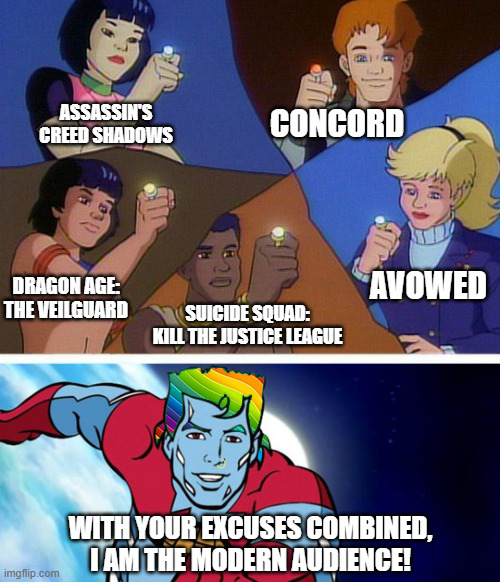
We’ve got creators, communities, and platforms where the conversation actually flows both ways.
And no amount of identity politics or forced ideological framing can change the fact that gaming is – and always has been – about escapism, challenge, and joy.
So, here’s to the future. Here’s to the end of the lecture circuit. Here’s to the fall of the media activist class. And most of all?
Here’s to games being fun again.
Want More?
Check These Out Next!
All images, logos, and video clips used in this article are the property of their respective owners. This content is used for the purposes of commentary, criticism, and news reporting under the guidelines of Fair Use (17 U.S.C. § 107). No copyright infringement is intended. If you are the copyright holder and believe your content has been used improperly, please contact us directly.
About Report AFK
A place for gamers, by gamers, untarnished by corporate gaming media and their nonstop attempts to elevate bad games while denouncing any developers brave enough to stand up to them.
Site Links
Copyright 2026 ReportAFK.com



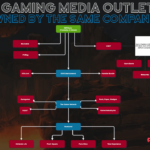
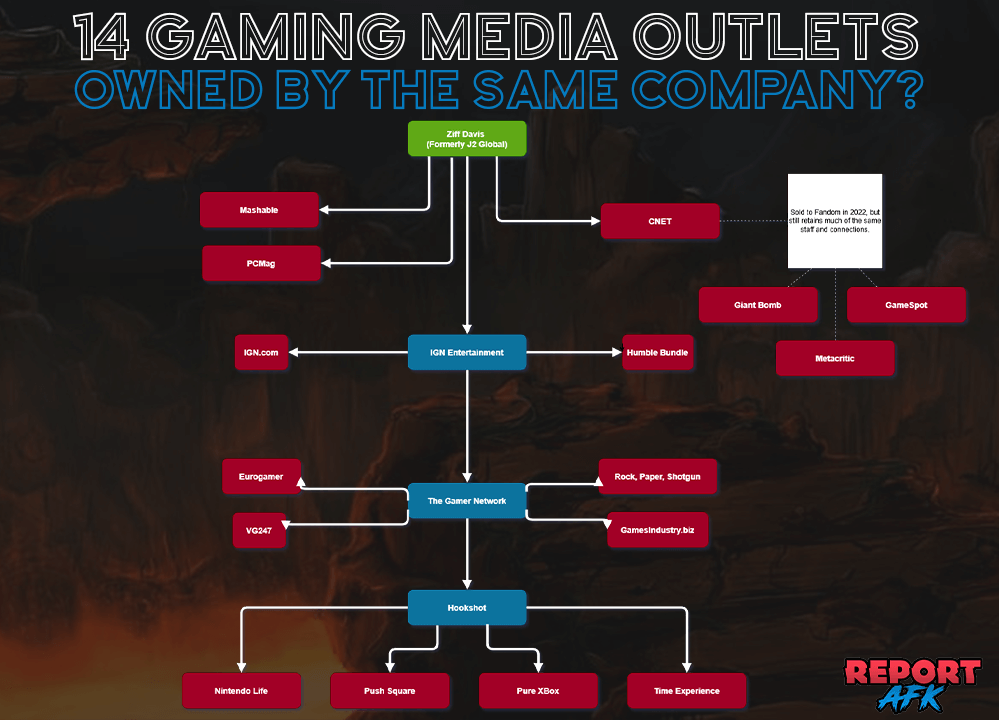
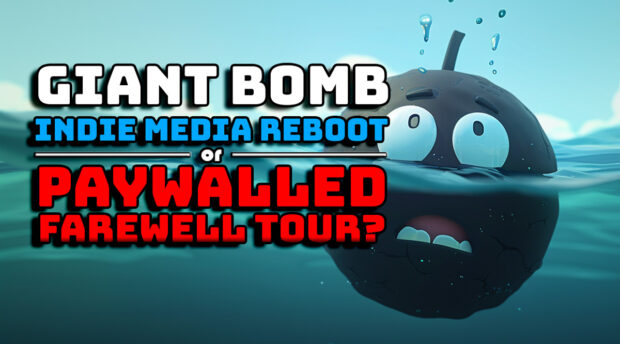
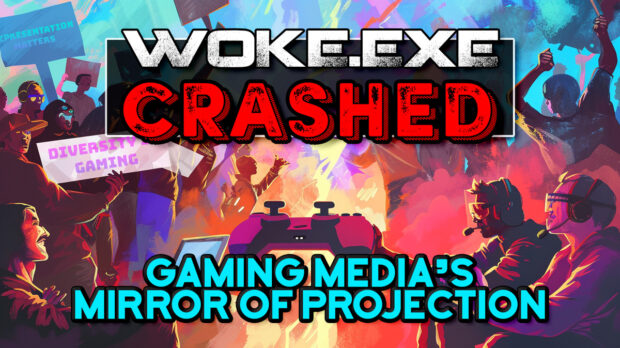
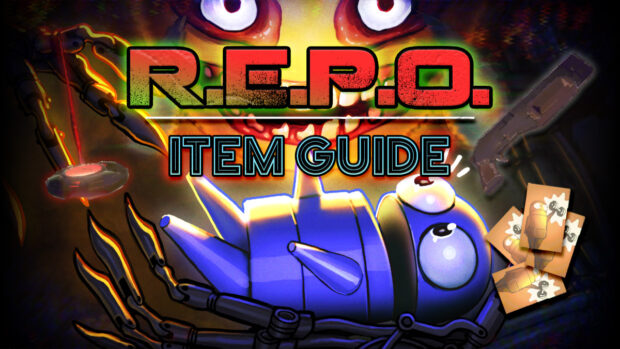




Be the first to leave a comment